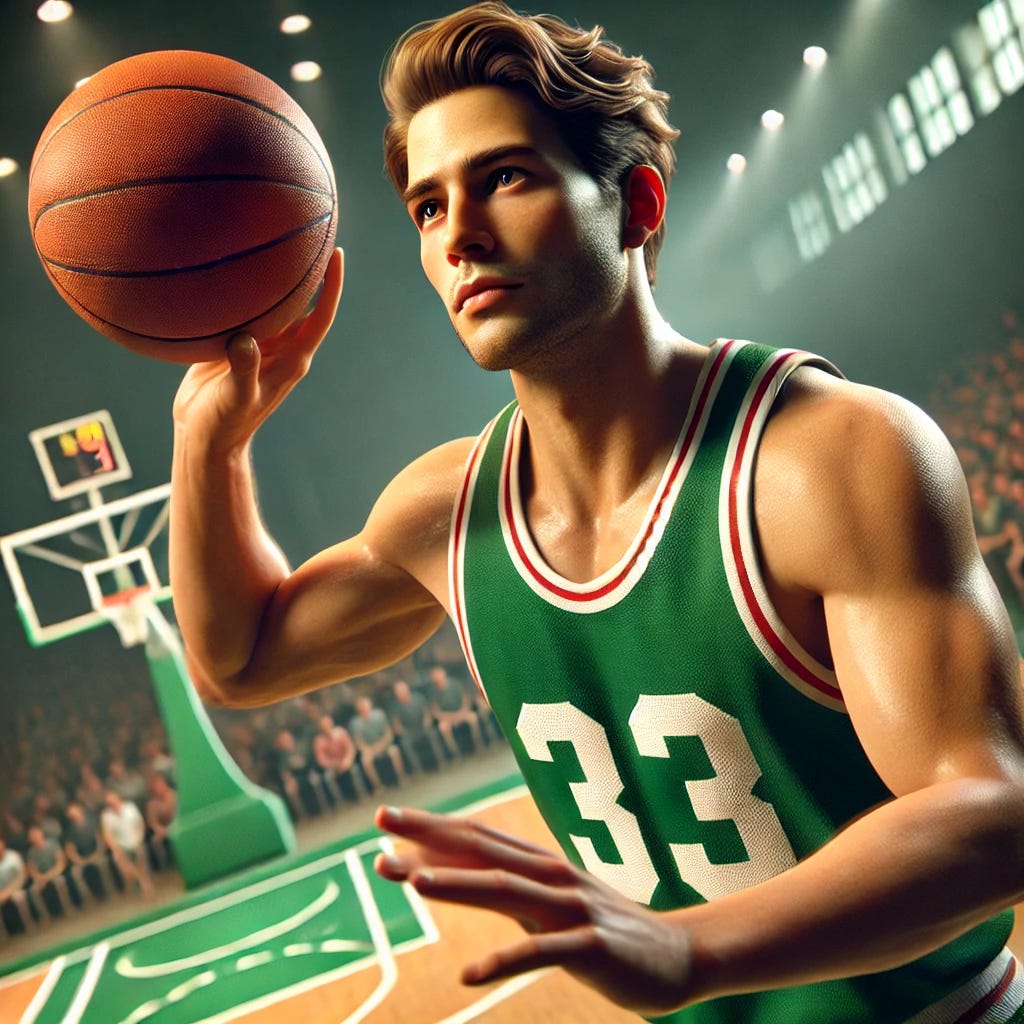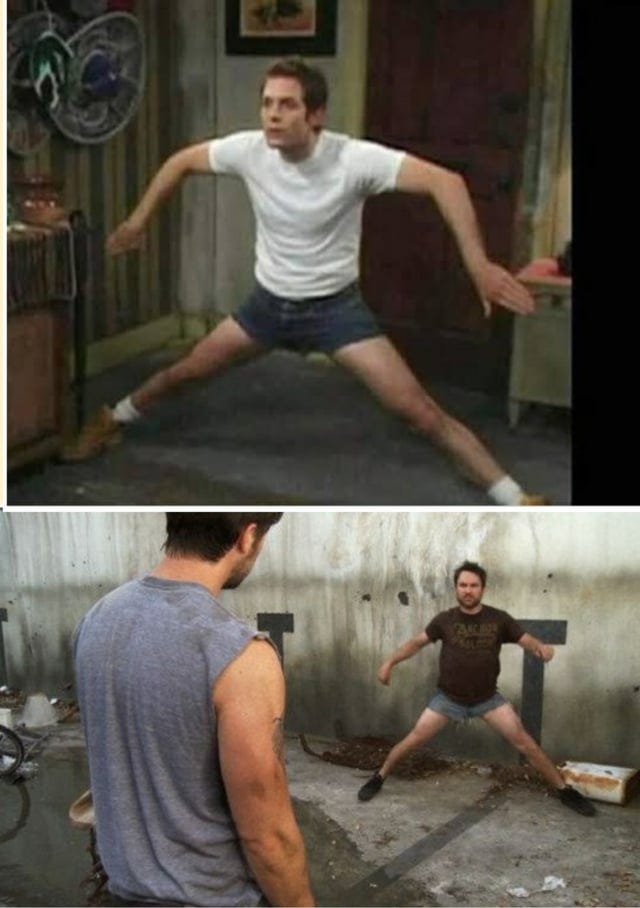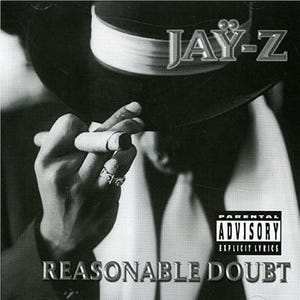Be the Dumbest Person in the Room
Always being at the smartest in a setting slows your growth and alters your reality.
I was recently lucky enough to attend a day of workshops and learning at Google about their AI products and roadmap. The learnings and sneak peeks at upcoming product releases were important, but looking around the room there was a more important aspect of the day.
I was surrounded by people much smarter than me and I was in sponge mode - trying to soak up as much knowledge and know-how as possible in the eight hours that we had together. This reminded me of an old axiom - if you’re consistently the smartest (or one of the smartest) people in the room, day-in and day out, your growth is going to slow drastically and your perspective is going to get warped. Let’s see how we can avoid that.
What Say You, Smee?
Lately at work I’ve been helping to evangelize AI internally - how we can incorporate it into our processes to make them more efficient, how we can make our client work product better, what potential commercial applications exist. This makes me a coveted subject matter expert - or SME - when it comes to AI and its potential applications.

Being an SME is an important growth driver and a great way to internally network, as you’re called upon in front of different teams and clients and peppered with questions about how something works. By default the SME is usually one of the smartest in the room about a particular topic, and if you’re being called into these meetings week in, week out, you’ll start to consistently be the smartest and it will start to mess with your reality.
Play Pickup Basketball
While I may be a little slower and the reliable range of my jumpers decreases a bit every year, I’m a big basketball fan and amateur player - a pretty decent 2-guard if we’re being honest. The philosophy of not being the smartest in the room comes from my time playing pickup ball in metro Boston and New York City.
There are fewer better feelings in the competitive world than absolutely running a pickup game. Being the person who gets doubled up, having multiple switches throughout the game on you because they can’t figure out how to guard you - it’s the stuff of dreams. I still remember dropping 30+ in a Big Law night league when we only had four people show up on our side to keep us in the game - it was Ray Allen-esque.
But if you’re doing that every time you step on the court, you’re not going to get better. Continually dominating a court means you’re not being challenged and you’re going to simply stop growing. It’s satisfying to be a big fish in a small pond, sure, but the pond is only so big - your growth has to stop from the mere fact that there’s not enough to eat.
Does that mean you have to step on the court and get absolutely shellacked to grow? No - we’ve talked about discomfort vs. being uncomfortable and its effect on growth. You need to find those games where you can be more of a support player - set picks, find gaps and create ball movement, set up the right people to score for the team.
The Stretch Assignment
One of the most common ways to do this at work is the coveted “stretch assignment.” This is a project where the delegating manager picks someone they know may not tick every box for a given workstream, but has potential and needs experience to grow into that kind of employee who would be an automatic pick.
The thing about stretch assignments is that you have to seek them out - oftentimes explicitly asking your manager for either extra work or more challenging work. That’s where the growth comes from. Not from doing the same kind of work over and over, but from switching it up and doing more with the same amount of time (work on your prioritization and time management) or something relatively new and hone a new skill.
The goal isn’t to pull a Robert Johnson, take your stretch assignment to a corner and reappear a savant. It’s to be get exposed to new departments and people that challenge you in ways that you can turn into growth. In other words, you need to jump a few rungs down on the “smartest in the room” ladder and start closer to the bottom and re-work your way back up.
One of the largest drivers of stagnation is the inability to do this very thing. Too many people get to the top of a ladder and refuse to take a few steps down in order to have to climb back up. Careers aren’t linear, and even if you’re following a traditional career path it’s not always incrementally up - the corporate ladder looks more like a game of chutes and ladders than a single way up.
Keep it Humble
We’ve talked about consistently being the smartest in the room and its effects on one’s growth. In summary, not great. The same goes for the phenomenon’s effect on the ego: not great.
If you’re always one of the smartest people in the room, you might begin to think that you’re simply one of the smartest people around. Your reality begins to drive your ego in a way that makes it harder to recognize any shift in said reality, until you begin to lose sight of the fact that you can, in fact, learn from others.
Making the conscious shift in the stretch assignment may very well require you to consciously turn off the ivory tower routine. You’re there to learn and you’re going to need to absorb and think before speaking.
The thing is, even if you walk into a room objectively knowing you’re the highest ranking Mensa member of the group you should follow the same advice. Take a page from Simon Sinek and be the last to speak in the room. Don’t be the kid in class constantly interrupting others with his two cents or passive aggressively raising and waving his hand trying to get a word in. You don’t get smart by talking, you get smart by listening.
Grab Bag Section
WTF Trump McDonald’s: The warming fries in a Bucks County, PA McDonald’s had a little extra orange glow over them this week as Donald Trump took a “shift” at a local McDonald’s. I had my suspicions when he called it “fun” afterward - this convinced me he didn’t get the real McD’s experience.
I’m a proud McDonald’s alum - I did two summers at a truck stop McD’s in high school and learned a lot about QSR, but even more about life. For the first few weeks, one could use the word “fun” every now and then, but then the store manager caught on that his best shift with the best numbers was - gasp - not hating it and he stopped scheduling certain members together, lest the I-95 fast food public think we weren’t miserable.
Let’s get a few things straight about Trump’s stint at Donnys:
You don’t touch the fries for the first month - that’s a coveted position;
You aren’t customer-facing for at least a week. And drive-thru? You have to prove you can handle customers at the front counter, where you can’t just close the window when you’re done getting screamed at for a wrong order;
What does that leave you? Kitchen or dishwashing if you’re lucky. Walk-in organization/truck unloading if you’re unluckier. Bathrooms if you have very shitty luck.
Only managers wore white - respect the hierarchy. If you didn’t earn it, you’re in the blues.
I also texted the old McD’s crew about their thoughts on DJT’s form. Here’s what they said (I’ve kept their names anonymous for reasons that will become obvious):
Employee 1: “Have to say Trump’s McD’s form sucked shit. He would’ve been sent to bathroom cleaning duty 15 mins into lunch rush. Drive thru times would have been through the roof and he’s not pumping those fries out fast enough.”
Employee 2: Made a joke I cannot print about the sex offender who worked at our store who consistently asked us if we needed rides home in his converted van which had a pull out couch and a television in it.
Employee 3: Sent this AI video of what Trump’s shift would have actually looked like if it occurred during a real work day.
The McDonald’s alumni network really coming through.
Album of the Week: There are many debates in the rap world, one of which is who is the best rapper. There is no right answer, which makes it an evergreen prompt to start a debate. Another hotly debated question is “Which Jay-Z album is best?” Luckily to this question there is a correct answer, and it is his studio debut Reasonable Doubt.
Listening to this album today, one loses the utter newness of Jay-Z’s style and even as we see him feature with the likes of Mary J. Blige (on the intro “Can’t Knock the Hustle”) and Notorious B.I.G. (“Brooklyn’s Finest”), we lose sight of the sheer fact that Jay-Z was miniscule compared to these two commercial heavyweights in 1996.
What makes this album different than his others is its raw emotion - something Jay is not known for in his music as a whole. He told Rolling Stone that being in the studio making the album was “like a psychiatrist's couch for me.” This is a very different Jay-Z than the superstar being accused of being in the Illuminati and screwing Lil Wayne over for the New Orleans Super Bowl. Before Hova gets caught up in the Diddy scandal, give this album a spin guilt-free and go back to a time where his entire career and discography were ahead of him - and he rapped like it.
Quote of the Week: “The measure of intelligence is the ability to change.” - Albert Einstein








